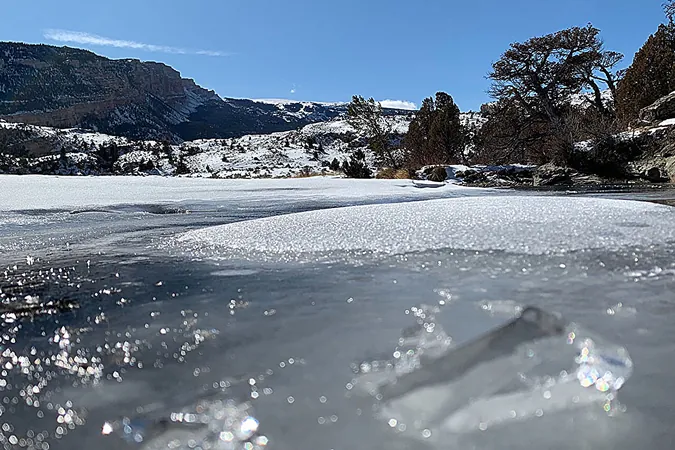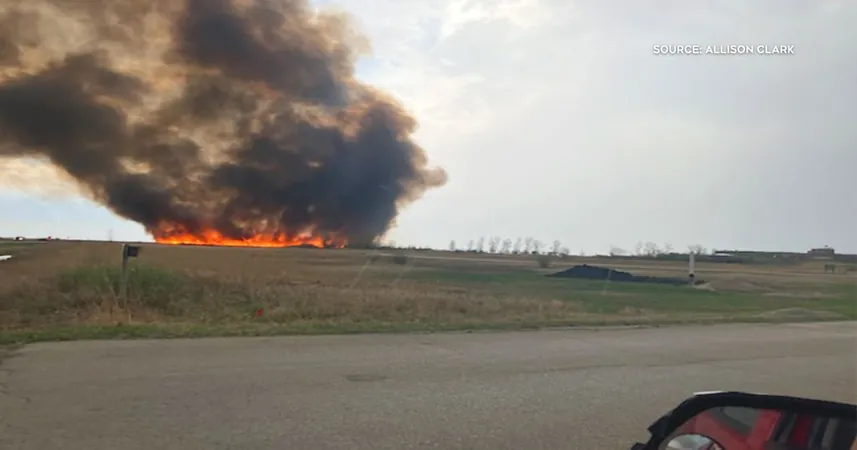
Unlocking Climate Awareness: How Memories of Lost Winters Spark Change
2025-04-24
Author: Noah
Climate change isn't just about rising temperatures; it's also about the increasingly elusive whispers of winter. A groundbreaking study from UCLA and Princeton reveals a striking method to combat climate indifference, shifting how we understand the impacts of warming on our lives.
The Hidden Dangers of Gradual Change
Researchers found that the slow creep of temperature increases can lead to public apathy, particularly among those not directly facing climate-driven disasters. Rachit Dubey, a cognitive psychologist and incoming professor at UCLA, explains that a simple shift in how we present information—showing binary data rather than continuous temperature graphs—can illuminate the stark realities of climate change.
From Ice to Impact: A Shift in Perception
In their study, participants evaluated the climate change impact on fictional and real lakeside towns, including Lake George in New York. When participants viewed data indicating whether lakes froze or not, they perceived climate change as significantly more impactful than those who merely saw temperature increases. The difference? A striking 12% in perceived seriousness! When lakes stopped freezing regularly, it wasn’t just a number; it ripped apart winter traditions like ice skating and ice fishing.
The 'Boiling Frog' Effect: An Emerging Concern
Dubey points to a troubling 'boiling frog' phenomenon—people gradually adjusting their definition of 'normal' in the face of worsening climate realities. The study suggests that as natural phenomena become increasingly abnormal, the urgency to act fades. Dubey’s research attempts to understand how we adapt mentally to these negative environmental changes.
Bringing It Home: Personalizing Climate Change
Lead author Grace Liu emphasizes the emotional connection: it's not merely warmer winters; it’s about the loss of winter sports and cherished seasonal traditions. Rather than discussing climate change in abstract temperatures, the research advocates for conveying changes in tangible, relatable terms, like the dwindling joy of snowy seasons.
A Call to Action for Communicators
The insights from this study are a clarion call for climate communicators, policymakers, and journalists. Presenting climate data in impactful, binary formats could reinvigorate public concern and drive community action toward addressing the climate crisis. As Liu notes, engaging emotional connections can be a game changer in how we perceive climate change.
Toward a More Engaged Future
The findings in this study advocate for reimagining how we present climate change statistics. As temperatures rise, highlighting the loss of once-uncommon winter experiences may just be the catalyst we need to spark urgent dialogue and action. By shifting the narrative from abstract statistics to the nuanced and concrete consequences of climate change, we can foster a stronger sense of responsibility and urgency in preserving our planet.









 Brasil (PT)
Brasil (PT)
 Canada (EN)
Canada (EN)
 Chile (ES)
Chile (ES)
 Česko (CS)
Česko (CS)
 대한민국 (KO)
대한민국 (KO)
 España (ES)
España (ES)
 France (FR)
France (FR)
 Hong Kong (EN)
Hong Kong (EN)
 Italia (IT)
Italia (IT)
 日本 (JA)
日本 (JA)
 Magyarország (HU)
Magyarország (HU)
 Norge (NO)
Norge (NO)
 Polska (PL)
Polska (PL)
 Schweiz (DE)
Schweiz (DE)
 Singapore (EN)
Singapore (EN)
 Sverige (SV)
Sverige (SV)
 Suomi (FI)
Suomi (FI)
 Türkiye (TR)
Türkiye (TR)
 الإمارات العربية المتحدة (AR)
الإمارات العربية المتحدة (AR)